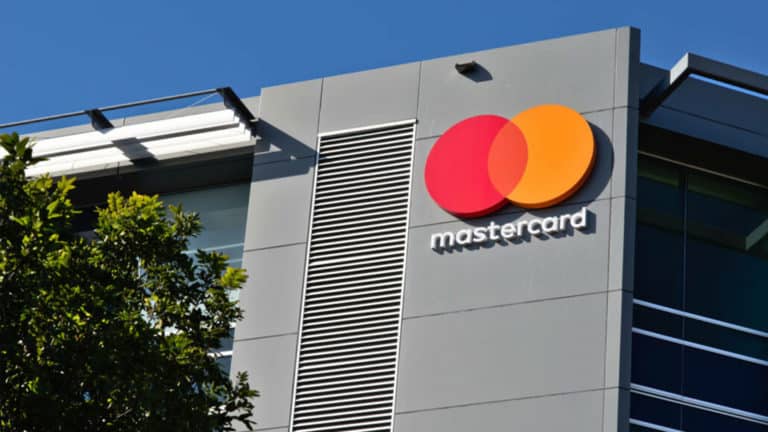Mastercard to Support Cryptocurrencies in 2021: A Game-Changer for Digital Payments
Global payments giant Mastercard announced its plans to support cryptocurrency transactions on its network in 2021, marking a pivotal shift in the adoption of digital assets. With access to 30 million merchants and nearly one billion users, Mastercard’s decision could transform how cryptocurrencies are utilized in everyday payments. However, the company has set strict compliance criteria to ensure security and regulatory adherence.
Mastercard’s Cryptocurrency Integration: What It Means
Mastercard’s move to incorporate cryptocurrencies directly into its payment network represents a significant step toward mainstream crypto adoption.
Key Highlights
- Direct Crypto Transactions: Cardholders will be able to transact with select cryptocurrencies on Mastercard’s network.
- Global Reach: Access to over 30 million merchants provides unparalleled exposure for digital assets.
- Strict Compliance Standards: Only cryptocurrencies that meet Mastercard’s rigorous criteria will be supported.
This development aligns Mastercard with other financial giants, such as Tesla, which recently announced its Bitcoin investment and acceptance as a payment method.
Criteria for Cryptocurrency Inclusion
Mastercard has outlined four critical criteria that cryptocurrencies must meet to be integrated into its network:
1. Consumer Protections
- Ensuring privacy and security for users is paramount.
- Mastercard aims to mitigate risks such as fraud and unauthorized transactions.
2. Know Your Customer (KYC) Compliance
- Cryptocurrencies must adhere to strict KYC regulations to prevent money laundering and illicit activities.
3. Legal Adherence
- Compliance with local laws and regulations is mandatory for any cryptocurrency to be included.
4. Payment Stability
- Cryptocurrencies must demonstrate stability and reliability to be used as a viable payment method.
These criteria ensure that Mastercard’s network remains secure, trustworthy, and compliant with global financial standards.
Mastercard’s Existing Crypto Collaborations
Mastercard has already partnered with companies like BitPay and Wirex to offer cryptocurrency debit cards. However, this new initiative marks a shift toward direct crypto support within its payment infrastructure.
What’s New?
- Previous collaborations involved third-party crypto payment processors.
- Now, Mastercard will directly process crypto transactions, eliminating intermediaries and enhancing efficiency.
Why Mastercard Is Embracing Cryptocurrencies
1. Rising Consumer Demand
- Mastercard noted a surge in users purchasing cryptocurrencies using their cards during the 2021 bull market.
- Growing interest in digital assets reflects a shift in consumer behavior and preferences.
2. Blockchain Innovation
- Mastercard has filed over 80 blockchain patents, signaling its long-term commitment to blockchain technology.
- The company is exploring stablecoins and Central Bank Digital Currencies (CBDCs), offering a test platform for central banks to evaluate their use cases.
3. Competitive Advantage
- Mastercard’s decision positions it as a leader in the evolving payment industry, alongside competitors like Visa and PayPal.
Impact on the Cryptocurrency Ecosystem
Mastercard’s support for cryptocurrencies could accelerate the adoption of digital assets, with implications for both consumers and businesses:
For Consumers
- Easier access to spend cryptocurrencies for everyday purchases.
- Increased confidence in the safety and legality of crypto transactions.
For Businesses
- Expanded customer base by accepting crypto payments.
- Access to blockchain-enabled payment systems for faster and more secure transactions.
For the Crypto Market
- Enhanced legitimacy and stability for supported cryptocurrencies.
- Potential for increased demand and adoption of digital assets globally.
Challenges and Limitations
Despite its promising potential, Mastercard’s crypto integration is not without challenges:
1. Limited Cryptocurrency Support
- Mastercard will not support all cryptocurrencies, citing concerns over compliance and stability.
- This selective approach may exclude popular yet volatile or non-compliant tokens.
2. Regulatory Hurdles
- Cryptocurrencies face varying regulations across jurisdictions, which could complicate Mastercard’s global implementation.
3. Consumer Education
- Educating users about the risks and benefits of crypto payments is essential for widespread adoption.
Mastercard’s Blockchain and Stablecoin Initiatives
Mastercard’s blockchain strategy extends beyond cryptocurrencies:
- CBDC Platform: In September 2020, Mastercard launched a platform to help central banks test and deploy CBDCs.
- Stablecoin Exploration: The company has expressed interest in stablecoins as a potential bridge between fiat and cryptocurrencies.
These initiatives demonstrate Mastercard’s forward-thinking approach to integrating blockchain into the global financial ecosystem.
Conclusion
Mastercard’s decision to support cryptocurrencies in 2021 marked a turning point for digital asset adoption. By enabling crypto transactions for one billion users across 30 million merchants, the company has taken a bold step toward mainstream acceptance.
While challenges remain, Mastercard’s focus on compliance, security, and innovation positions it as a key player in the evolving payment landscape. As blockchain technology continues to reshape finance, Mastercard’s initiatives could pave the way for a more inclusive and interconnected global economy.
To learn more about the innovative startups shaping the future of the crypto industry, explore our article on latest news, where we delve into the most promising ventures and their potential to disrupt traditional industries.
Disclaimer: The information provided is not trading advice, Bitcoinworld.co.in holds no liability for any investments made based on the information provided on this page. We strongly recommend independent research and/or consultation with a qualified professional before making any investment decisions.




